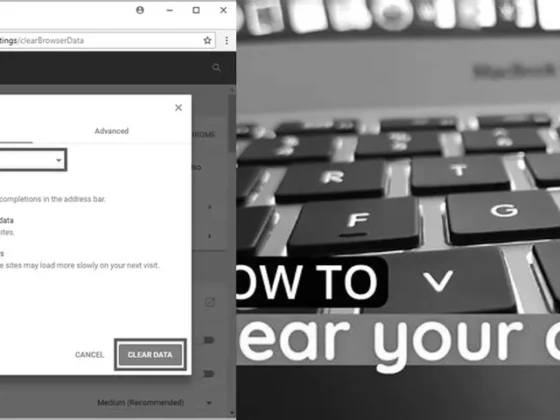Can Too Many Extensions Slow Down My Computer: Are you someone who loves to deck out your computer with countless extensions? From ad blockers to productivity tools, extensions can add a whole new level of functionality to your browsing experience. But have you ever wondered if too many extensions can actually slow down your computer? Well, you’re about to find out! In this blog post, we’ll dive into the impact of extensions on computer performance, the hidden costs of excessive extensions, and even the security implications of overloading on extensions. So, if you’re curious to know whether your beloved extensions are secretly dragging down your device’s processing speed, keep reading!
Understanding the Impact of Extensions on Computer Performance
As we delve into the world of browser extensions, it’s crucial to understand the role they play in our daily computing. Extensions are designed to enhance our browsing experience by adding functionality or streamlining certain tasks. However, the question arises: can these seemingly helpful tools be a double-edged sword?
The Burden on Chrome’s Performance
It’s a fact that having too many tabs or extensions open can bog down Chrome’s performance. Each extension runs processes, and the more you have, the more resources your computer has to allocate. This can lead to a noticeable slowdown, not just in your browsing experience but in your overall system performance as well.
Optimizing Browser Performance
If you’re noticing a lag, taking action by closing some tabs and disabling unnecessary extensions can help reclaim your computer’s speed. This is a straightforward yet effective step in ensuring that Chrome runs smoothly, leveraging its capabilities without overtaxing your system’s resources.
The Hidden Cost of Excessive Extensions
While browser add-ons offer numerous benefits, they come with a hidden cost. Too many inefficient browser extensions can transform from helpful assistants to burdensome liabilities, slowing down your computer instead of enhancing your browsing experience. It is crucial to recognize when extensions stop being beneficial and start to hinder performance.
System Resource Consumption
Extensions are indeed powerful add-ons to Chrome, but with great power comes great responsibility. Each active extension consumes system resources; therefore, too many extensions can increase the load on your computer’s processor and memory. This can result in sluggish response times and even impact other applications’ performance.
The Security Implications of Overloading on Extensions
Security is another vital aspect to consider when evaluating the necessity of each extension. Every extension you install adds a security risk to your computing environment. Developers of malicious extensions can exploit them to gain unauthorized access to your data or inject harmful code into your browsing sessions. The more extensions you have, the larger the attack surface for potential cyber threats.
Mitigating Security Risks
To mitigate security risks, it’s advisable to periodically review your installed extensions. Remove those that are no longer useful or that come from untrusted sources. Always keep your remaining extensions updated to the latest versions, as updates often include security patches for newly discovered vulnerabilities.
The Ripple Effect of Extensions on Device Processing Speed
Browser extensions don’t just affect the performance of your browser; they can also have a ripple effect on your entire device’s processing speed. This is especially true for extensions that are poorly coded or not optimized for efficiency. They can hog system resources even when you’re not actively using the browser, leading to an overall slowdown in device performance.
Strategies for Managing Extensions
Managing your extensions effectively can help maintain optimal device performance. Consider the following tips:
- Regular Audits: Periodically check your extensions and remove those that are seldom used or redundant.
- Disable Instead of Remove: For extensions you use infrequently, consider disabling them until needed. This way, they won’t consume resources in the background.
- Choose Quality Over Quantity: Opt for extensions that are well-reviewed and maintained by reputable developers. Quality extensions are more likely to be efficient and secure.
Is it Bad to Have Too Many Chrome Extensions?
While extensions can significantly improve your online experience, moderation is key. Too many extensions can make the browser consume more system resources, leading to a less efficient experience. It is not inherently bad to have multiple extensions, but it is essential to be selective and mindful of their impact on your system.
Effective Tab Management
When it comes to managing tab overload, some users turn to extensions designed to help organize and reduce the number of open tabs. This can be an effective strategy, but it’s important to choose such extensions wisely to avoid adding to the problem they’re meant to solve.
Are Extensions Bad for Your Computer?
Extensions are not inherently bad for your computer; they become problematic when used excessively or without discretion. The key is to strike a balance between the added functionality they provide and the potential drawbacks of overuse.
Ensuring Extension Safety
To ensure that extensions don’t compromise your computer’s integrity:
- Research: Before installing an extension, research its purpose, read user reviews, and verify the credibility of the developer.
- Permissions: Pay attention to the permissions an extension requests. Be wary of those asking for more access than necessary for their function.
- Updates: Keep your extensions and your browser updated to the latest versions to benefit from the latest features and security enhancements.
Conclusion
In conclusion, while extensions can enrich your online experience, it’s crucial to use them wisely. By managing the number and types of extensions you install, you can maintain your computer’s performance and security. Remember to periodically review and update your extensions to ensure they continue to serve you well without becoming a detriment to your browser’s and computer’s health.
FAQ & Related Questions about Can Too Many Extensions Slow Down My Computer?
Q: Can having too many extensions slow down my computer?
A: Yes, having too many extensions can slow down your computer’s performance, especially if you have multiple tabs or unnecessary extensions open in your browser.
Q: How can I improve my computer’s performance if I have too many extensions?
A: To improve your computer’s performance, you can try closing some tabs and disabling any unnecessary extensions. This will help reduce the strain on your system resources.
Q: Can an outdated browser cause slow loading times?
A: Yes, an outdated browser can cause slow loading times. It is important to keep your browser up to date to ensure optimal performance.
Q: Are browser extensions bad for my computer?
A: While browser extensions can enhance your browsing experience, every extension you install adds a security risk. It is important to be cautious and only install trusted extensions from reputable sources.
Q: Is there a way to manage tab overload caused by too many extensions?
A: Yes, you can use an extension specifically designed to help manage tab overload. However, it is important to note that using too many extensions can make your browser consume more system resources, potentially slowing down your computer.


